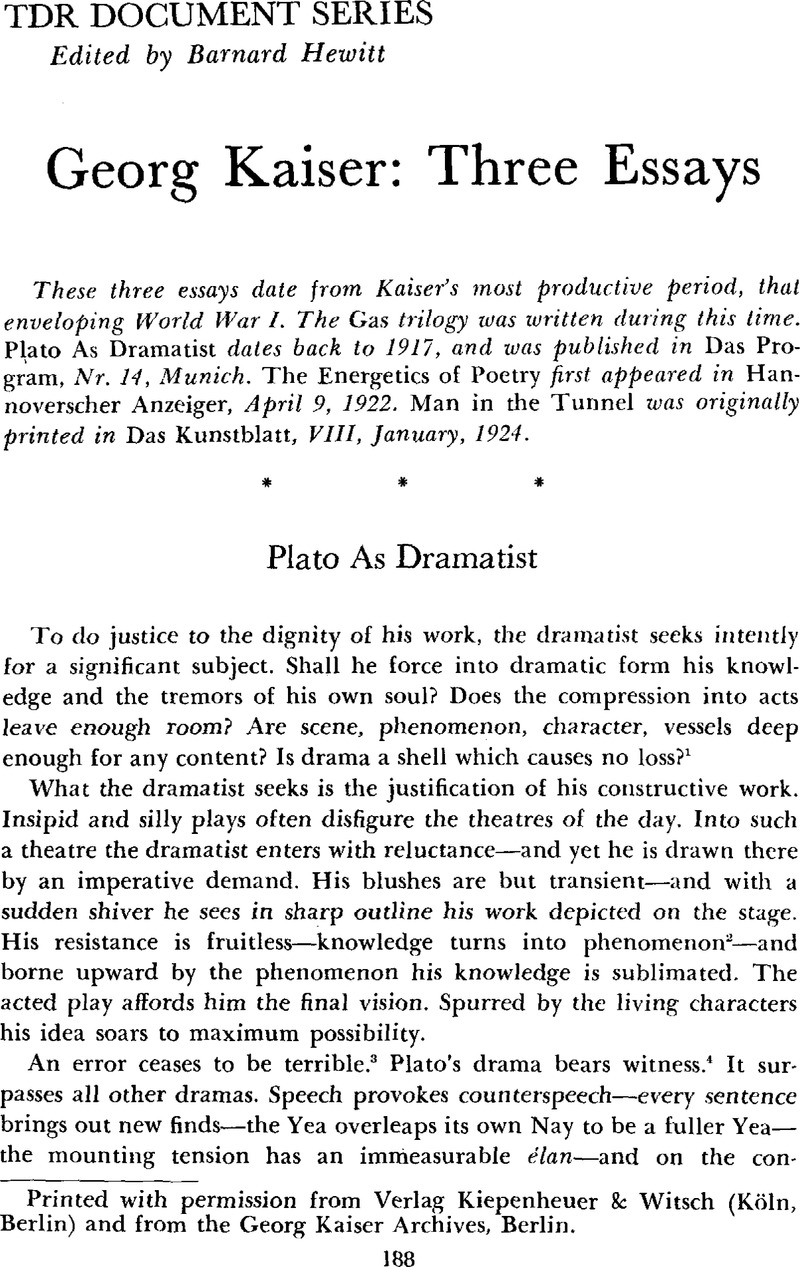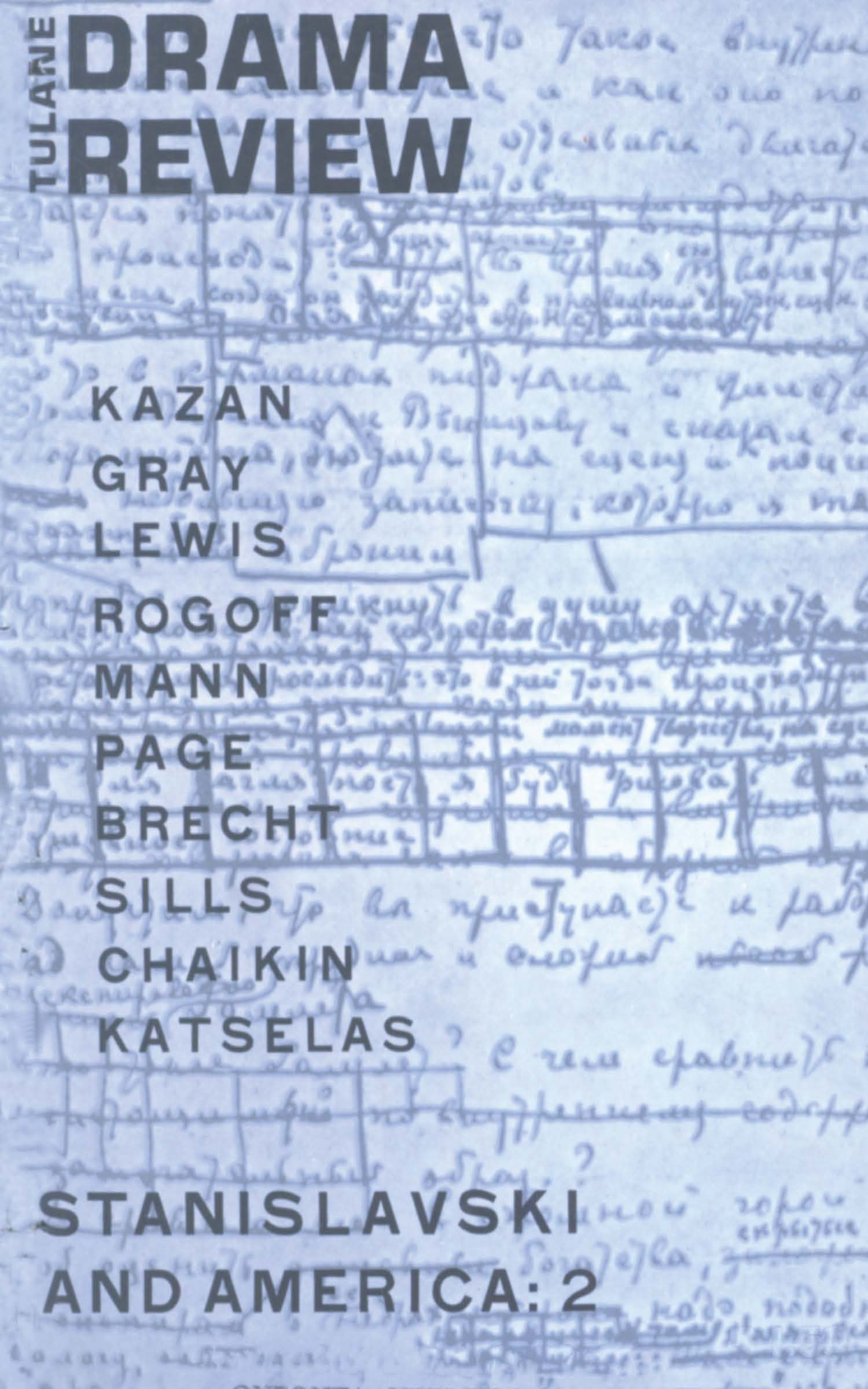No CrossRef data available.
Article contents
Plato as Dramatist
Published online by Cambridge University Press: 14 February 2022
Abstract

- Type
- TDR Document Series
- Information
- Copyright
- Copyright © 1962 The Tulane Drama Review
References
Translator's Notes
Printed with permission from Verlag Kiepenheuer &: Witsch (Köln, Berlin) and from the Georg Kaiser Archives, Berlin.
1 Suggested meaning: when the dramatist puts his dramatic frame around a given content, will not some of it escape?
2 The German word Erscheinung as used in this context implies what appears on the stage.
3 I am not sure of the meaning. Possibly this: when the dramatist has witnessed his work in performance, minor imperfections no longer crush him.
4 Two possibilities: a) Plato's drama bears out the preceding statement; b) Plato's is the kind of drama which bears testimony.
5 I think that he means the sight of the encounter of two such opponents.
6 Suggested meaning: in Plato's mind the picture preceded the idea of the dialogue.
7 The critic Diebold refers to Kaiser's plays in general as “Denkspiele“ and calls their author a “Denkspieler.”


